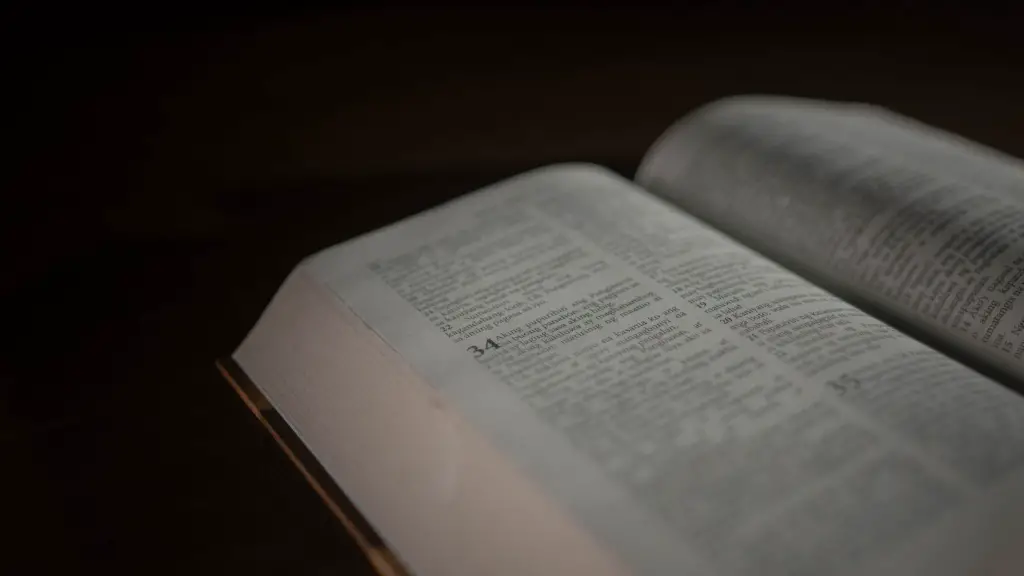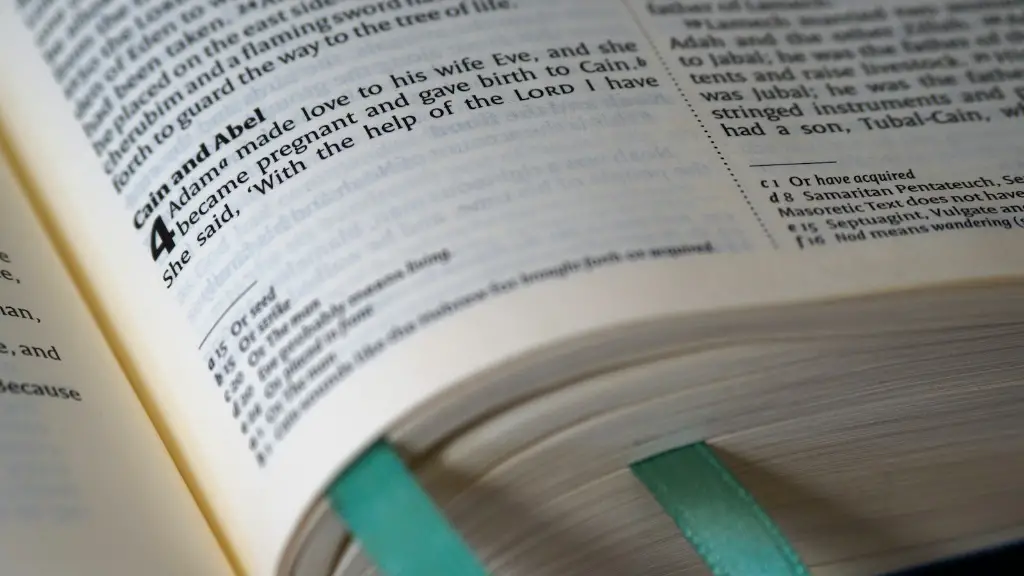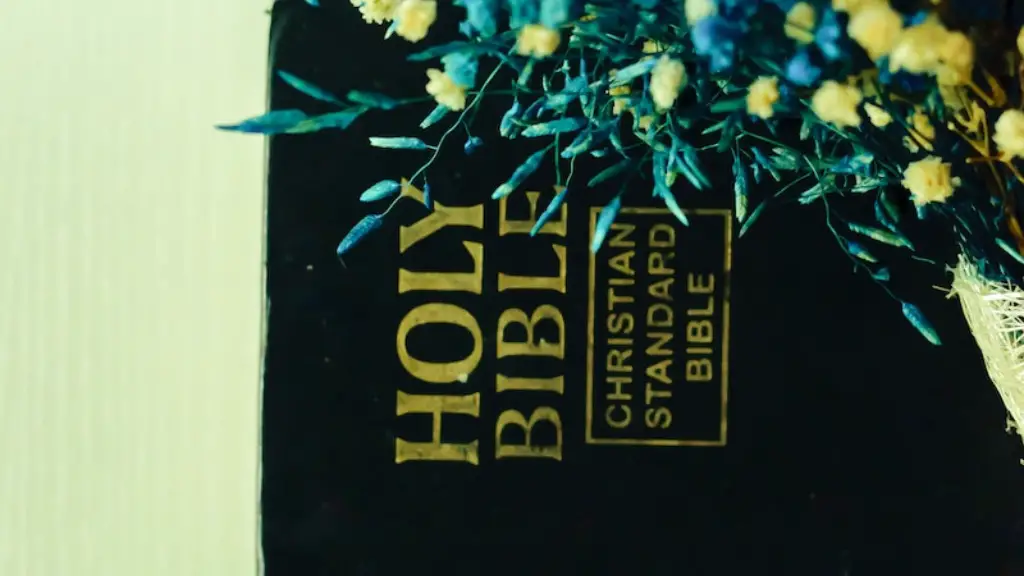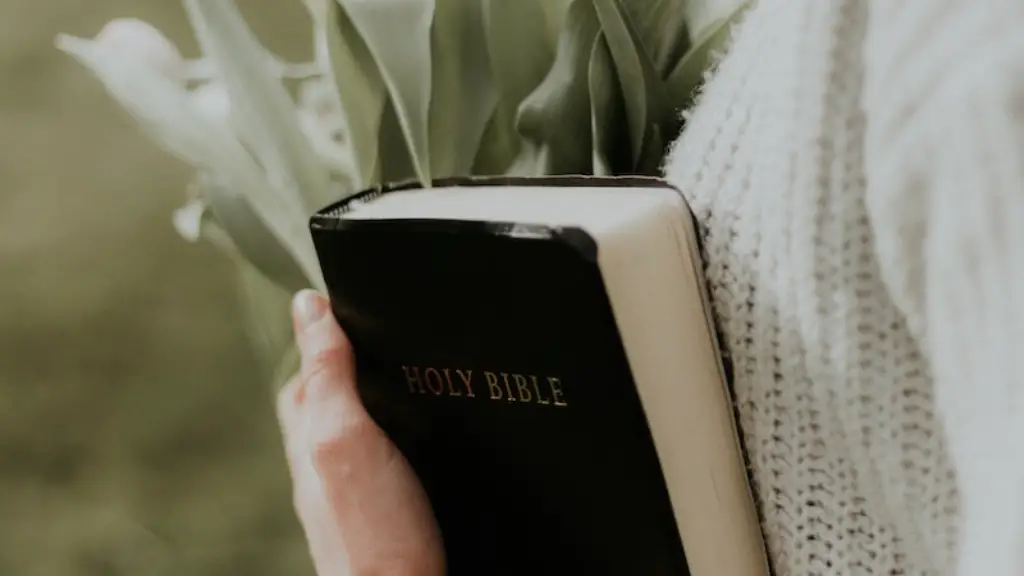What is the Bible?
The Bible is a collection of sacred books in Christianity, composed of Old and New Testament texts that were written in various languages many centuries ago. It is a compilation of books that serve as a guide to believers and provides insight into God’s relationship with people. The Bible is relevant to all matters of life, from love, to faith, to living justly. It contains stories and teachings of Jesus and his disciples, prophets, and other religious leaders.
How Many Books In The Bible Catholic?
The Bible for Catholics is made up of 73 books: 46 in the Old Testament and 27 in the New Testament. The Catholic Bible is typically the same as the Protestant Bible, with some variations in the books and the placement of certain books. In the Old Testament, Catholics include the seven Deuterocanonical books that are considered by some Protestant denominations to be apocryphal. These books include: Tobit, Judith, 1 and 2 Maccabees, Wisdom, Ecclesiasticus and Baruch.
The Canonicity of Scriptures
The canonicity of scriptures is the process of determining which books should be considered holy and divinely inspired. This process took centuries, as both Jews and Christians worked to establish guidelines for acceptance. To be considered a part of the Bible, a book needed to show evidence of divine inspiration and contain true teachings. In the early Church, authorities relied on a variety of methods, such as authority of early church leaders, consideration of cultural and historical context, and the nature of Jesus’ teachings to determine which books would be accepted as part of the Bible.
The Formation of the Catholic Bible
The Catholic Bible was finalized in the Fourth Century during the Council of Hippo and the Council of Carthage in 393-419 AD. During this time, these councils declared the list of books and their placement in the Bible. This list was eventually ratified in 1546 at the Council of Trent, and it has remained the same ever since.
Why These Books?
The Catholic Church has defended the inerrancy of scripture since its establishment. They believe that the 73 books were selected because they were divinely inspired, and thus further understanding and love of God is revealed by their contents. In addition, Church teaching holds that these books contain essential teachings that are essential for true Christian faith.
Interpretation of Sacred Texts
Interpretation of these sacred texts is an important part of the Catholic faith. All 73 books may be read, but not all books can be interpreted using the same method. The Church acknowledges four senses of scripture, which include the literal, allegorical, moral and anagogical. This means that a person may read and interpret the words at a literal level, symbols or metaphors, as having a moral lesson and as something to look forward to in the future.
The Study of Scripture
In addition to providing teachings and guidance to Catholics, the Bible can also help foster the spiritual practice of study. What may appear to be a simple reading of scripture can provide immense depth. Bible study often prompts people to ask questions about themselves, their faith, and their relationships with God and others. People may also gain insights into the beauty of language, the interconnectedness of life and faith, and the responsibility to serve as a witness of God’s grace.
The Bible In the Catholic Church
The Catholic Church views the Bible as the living, inspired Word of God and the basis for their faith. Catholics often refer to the Bible as the “Word of Life” and study it to deepen their understanding of God, their relationship with Christ, and the application of their faith to every aspect of life. For Catholics, the Bible is also an important source of doctrine and guidance. The Church firmly believes that sincere and thoughtful reading, contemplation and study of the Bible is critical to a faith-filled life.
The Impact of Bible Reading
For Catholics, reading the Bible provides an opportunity to explore faith, deepen understanding and discover a fresh relationship with God. People of all ages and backgrounds can benefit from scripture and the insights it provides. Scripture can help provide fortitude, strength and hope in times of difficulty and sadness, while also providing an avenue to celebrate joy, victory and growth.
Bible as a Source of Worship
The Catholic Church also offers Bible-based religious services and practices such as Bible study groups and other resources. These opportunities provide a place for members to come together and encounter God through scripture. Bible study groups also give members an opportunity to ask questions, explore faith in new ways, and seek guidance in difficult times.
The Role of the Catholic Church In Scripture
The Catholic Church serves as a source of teaching, guidance and authority on the interpretation of scripture. They provide resources and guidance for studying scripture and help individual Catholics to understand their faith more deeply through exploration of the Bible. The Catholic Church also provides resources and training for spiritually mature leaders, who maintain a close relationship with scripture and use it to inform their life, decision-making and communal works.
Conclusion
The 73 books that make up the Catholic Bible provide an important foundation for Catholic living and understanding of the faith. Scriptural studies, worship and spiritual practices provide opportunities for connection to and knowledge of God. Through prayer, study and contemplation of the Bible, Catholics can gain a richer and more meaningful experience of God and the love He has to offer.



